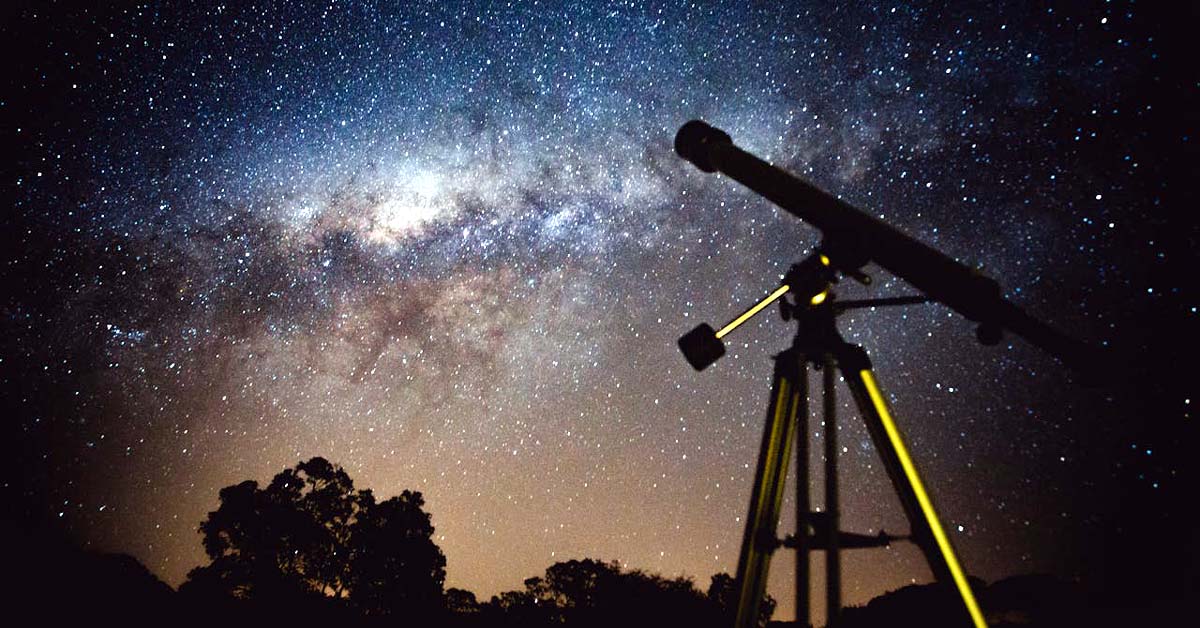Glad Out uncovers the comprehensive revival of astrology in ancient Western times has become a familiar daily topic for the public and has profoundly influenced people’s ideologies today. In fact, behind this craze is a history of development spanning thousands of years: astrology has experienced various ups and downs during the transitions of different civilizations and generations and is related to the essential aspects of Western civilization, such as politics, religion, and philosophy.
Revival of Astrology: Understanding the history of zodiac signs is essential
If you only know the 12 zodiac signs, that’s too low. To truly understand what astrology is, you must understand its history and the various accidental and inevitable factors that have affected it. Recently, Qian Liqing, a researcher in philosophy and history of science, was a guest of Pengpai Question. He popularized the story behind astrology for Pengyou from the science and intellectual history perspective.
Is astrology a pseudoscience?
Is astrology a pseudoscience? What does it have to do with the occult? What are the similarities and differences between Chinese and Western astrology? The following are selected answers to netizens’ questions, with some editing.
Popular science
Astrology is an interpretive skill with a complex theoretical basis. Its theory comes from a common natural philosophical belief in ancient times: changes in heavenly things impact things on earth. Understandings and explanations of this effect vary. All ancient civilizations, such as Babylon, Egypt, India, Persia, China, etc., had their astrology, with similar and different contents.
Generally speaking, astrology is people’s efforts to grasp the complex changes in earthly things from the perspective of celestial influences, extending from natural things to human affairs. The most influential branch of Western astrology was introduced to Greece from Babylon. In addition to grasping the influence between heaven and earth, it strives to understand the entire universe. Of course, there are many influences from ancient Greek philosophical schools.
Astrology is a significant intellectual achievement of humanity
Ancient astrology is undoubtedly a significant intellectual achievement of humanity, but it isn’t easy to understand it correctly. People today must look at it from a historical perspective and cannot regard it as an isolated explanation system or scientific theory. Otherwise, they will fall into the misleading science/pseudoscience debate. The ancient Greeks had long realized that as a method of seeking knowledge, astrology has no right or wrong, nor is it true or false. It is not a theoretical activity that scientifically pursues empirical verification. The ancient Greeks believed astrology was credible, but its reliability and accuracy needed to be stronger than astronomical conclusions.
What exactly is astrology?
Since astrology has been ontologically superseded by modern science, what exactly is it? If you believe in the effect of astrology, then I prefer the psychological explanation approach, especially the individual’s understanding and grasp of one’s own (or even other people’s) situation. It can be used as a technique to explain the relationship between the current realm and the past and, at the same time, make some suggestions for future changes. Many psychologically inclined astrologers today like to understand it this way. If we ignore the ontological differences between ancient and modern times, the ancients held similar views on the practice of astrology.
Western thinkers over astrology
The history of ideas is also a good angle. French scholar Auguste Bouché-Leclerq published “Greek Astrology,” the first history of classical astrology in history, at the end of the 19th century. This work provided an important basis for future generations to truly enter the world of classical astrology. It is a work with a history of science orientation, which establishes the history of astrology as a branch of the history of science. I prefer this approach.
It needs to be emphasized again that astrology is always positioned as a technology with a theoretical basis, not a science, and there is no question of whether it is pseudo-scientific or not. Although its theoretical level has a very scientific part, as well as natural philosophy and mysticism, these cannot determine its essence. What determines the essence is its purpose. History tells us that astrology only participated in a minimal sense in the purpose of theoretical explanation of the world, such as that of Ptolemy.
Generally, it does not aim to explore the truth but to “create” explanations for some specific and specific purposes. In the ancient Greek sense (especially Aristotle), human rational activities can be mainly divided into theoretical, practical, and production. Theory is a contemplative activity to pursue truth, while production is for creation. Something that does not exist behind theoretical activities is the soul of “science,” while creation relies on a soul power called “skill,” and its achievements are usually called technology. In Aristotle’s view, making and using tools and composing music and poetry can be regarded as crafts or techniques; in this sense, so can astrology.
Religious point of view regarding Astrology
What we usually call astrology originated in ancient Babylon, and the earliest record is the Mesopotamian civilization and creation myth inscriptions (Enema Anu Enlil). There are about 70 inscriptions in total, with different dates. Most scholars today believe the earliest can be traced back to 1646 BC. In the late Babylonian civilization, their astronomical and astrological knowledge spread to other places and reached ancient Greece around the beginning of the Hellenistic period, from the fourth century BC onwards. The Greeks only knew astrology at that time.
When ancient people named the stars, they incorporated philosophical or mythological ideas. For example, we Chinese call them metal, wood, water, fire, and earth, and the Greeks named them five gods (Rome followed these five gods), which constitute the meaning of the stars—their most basic positioning.
Just talking about Western astrology, at least people in the Greek period would associate it with the divine meaning (the gender, character, function, etc.) of the stars when they talked about them. Later, people also used the four significant elements of natural philosophy—theories to locate and explain them, resulting in more prosperous and complete theories. However, explanation is always alive and can always make its theory “able to explain” what happened through certain modifications. Even if the prediction is inconsistent with the facts, it can still be “explained” away.
Of course, the positioning of mythology and natural philosophy is a particular premise and a prior explanation. However, the effectiveness of this framework is also changing. It is constantly further improving itself in prediction and explanation. In other words, human beings are practicing astrology. An important lesson learned is to tell the story as perfectly and beautifully as possible.
Detailed discussion
Astrology is not opposed to polytheism, but its relationship with monotheism is complicated. Historically, many clergy, theologians, and related thinkers in the three major monotheistic religions (Judaism, Christianity, and Islam) strongly opposed astrology, and many were not opposed or even in favor of it. This entirely depends on the background of the times and personal interpretation angle. Similarly, the actual positions of politicians, philosophers, and even scientists cannot be generalized. For example, some of the significant astronomical figures we are familiar with today (Galileo, Kepler, Tycho, etc.) do not necessarily reject astrology.
Contemporary astrology began with so-called “success stories.” You can look up a man named Richard Harold Naylor, who is considered to be the originator of what ultimately made contemporary astrology a popular culture. One month after his classic astrological essay on August 24, 1930 (in which he drew the natal chart of Princess Margaret, the sister of Elizabeth II, and gave a brief explanation), he “successfully predicted” the famous R101 air crash event. Of course, to avoid the suspicion of promoting “feudal superstition,” I also ask you to pay attention to his cases of “failed prediction.”
Generally, books that emphasize the practice of astrology, as long as they are not ancient original texts, will focus little on its history and ideological aspects. At most, they will be brief introductions. As a researcher in the history of science, I pay more attention to its ideological development.
Astrological Goals
The change in astrological goals is a good question, but it is too big to answer in detail here. I can only mention a few essential points:
The so-called prediction is inseparable from the subsequent explanation, and its accuracy is also inseparable from our prior attention and understanding, as well as from the recording and statistics of the results.
What is an accurate prediction?
Simple advance notice plus post-event report. Several classic prediction cases in history, such as the Roman Emperor Domitian’s execution of an astrologer, his assassination, etc., are exciting events in which we can see the subtle relationship between prediction, occurrence, and explanation. It is not like a test of the predictions of a scientific theory but like a craft that teaches one how to view and interpret the same event before and after the fact.
Astrology was first used to predict natural and social events in the country. Under the influence of ancient Western philosophical and mythological thought, it is full of thoughtful things in academic theory. In addition, it has a pretty systematic theory. Of course, this is by no means “correct”; it is only a rational activity that explores some invisible laws. The laws are based on accumulating existing knowledge and visible things. Therefore, classical astrology is by no means equivalent to casual superstition.
However, just because it is rationally based, it can also be challenged and refuted. It was only before modern science that although ideas such as Christianity challenged it and opposed its mystical and fatalistic starting point, it was not substantially weakened. Because truly speaking, the root of astrology is its natural philosophical background. As a relatively systematic natural philosophical explanation of the relationship between heaven, earth, and man. There was no such thing before the scientific revolution in the 17th century (to be precise, before the birth of astrophysics). Stronger theory to defeat it. The best that religion can do is ideologically limited. However, after the Scientific Revolution, heliocentric theory and astrophysics gradually replaced all ancient natural philosophical explanations. Especially, the ontological basis for astrology, so the later intellectual community could no longer seriously adhere to astrology.
Changes in Astrology
Therefore, the changes in the acceptance direction of astrology must be viewed from a historical perspective. Ancient people could accept various theories of astrology quite reasonably. But if there are still people today who believe that astrology is ontologically reasonable, it is very unfair. Be rational. Just as people today can no longer reasonably insist on geocentric theory. It would be absurd if ancient people did not believe this. Whether a point of view or theory can be called “reasonable” or “rational” or even “scientific.” And is completely different from whether the point of view itself is “correct”.
Comparison of Chinese and Western astrology
Folks don’t know much about astrology, largely because the calculation techniques required by astrology are very complex. Only in the era of universal computers can mankind truly play astrolabe for all. As long as you type in the numbers, you don’t have to worry about how to do it theoretically or specifically. National astrology was unimaginable half a century ago. As for the political interpretation of astrology, it has existed since the birth of astrology more than 3,000 years ago. This is an important use of it, both at home and abroad.
Similarities
There are also similarities in the direction of interpretation. For example, the palace position and meaning of Zweig are similar to Western astrology. It belongs to Chinese Astrology (Chinese Astrology) along with the zodiac signs, the 28 constellations, etc. The Chinese have used many concepts of crape myrtle to translate Western astrological terms. But because the basic concepts are different, attention should be paid to their literal consistency. Also, differences in connotation. From the perspective of the explanatory paradigm, both sides have a basis in natural philosophy. Also, have a mystical aspect.
Ptolemy exemplifies how Western astrology seeks physical explanations for star movements, complementing mathematical ones. A complete understanding of nature includes this aspect.
Although this tendency of physical explanation could only take the form of some kind of natural philosophy at the time. Westerners never gave up on this point. Even when the church in the Middle Ages strongly restricted heresy, it did not completely ban astrology. But divided it into two categories divine astrology and natural astrology. The former involves issues of destiny and is strictly prohibited by the church. While the latter focuses on medicine, meteorology, geography, etc., and is officially allowed. This is a major feature of Western astrology and can be regarded as a manifestation of its scientific spirit.




